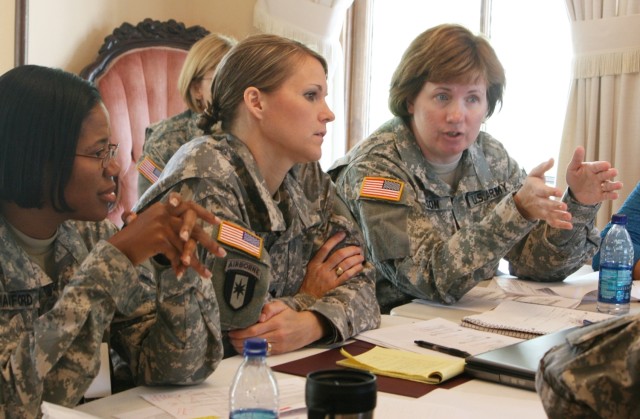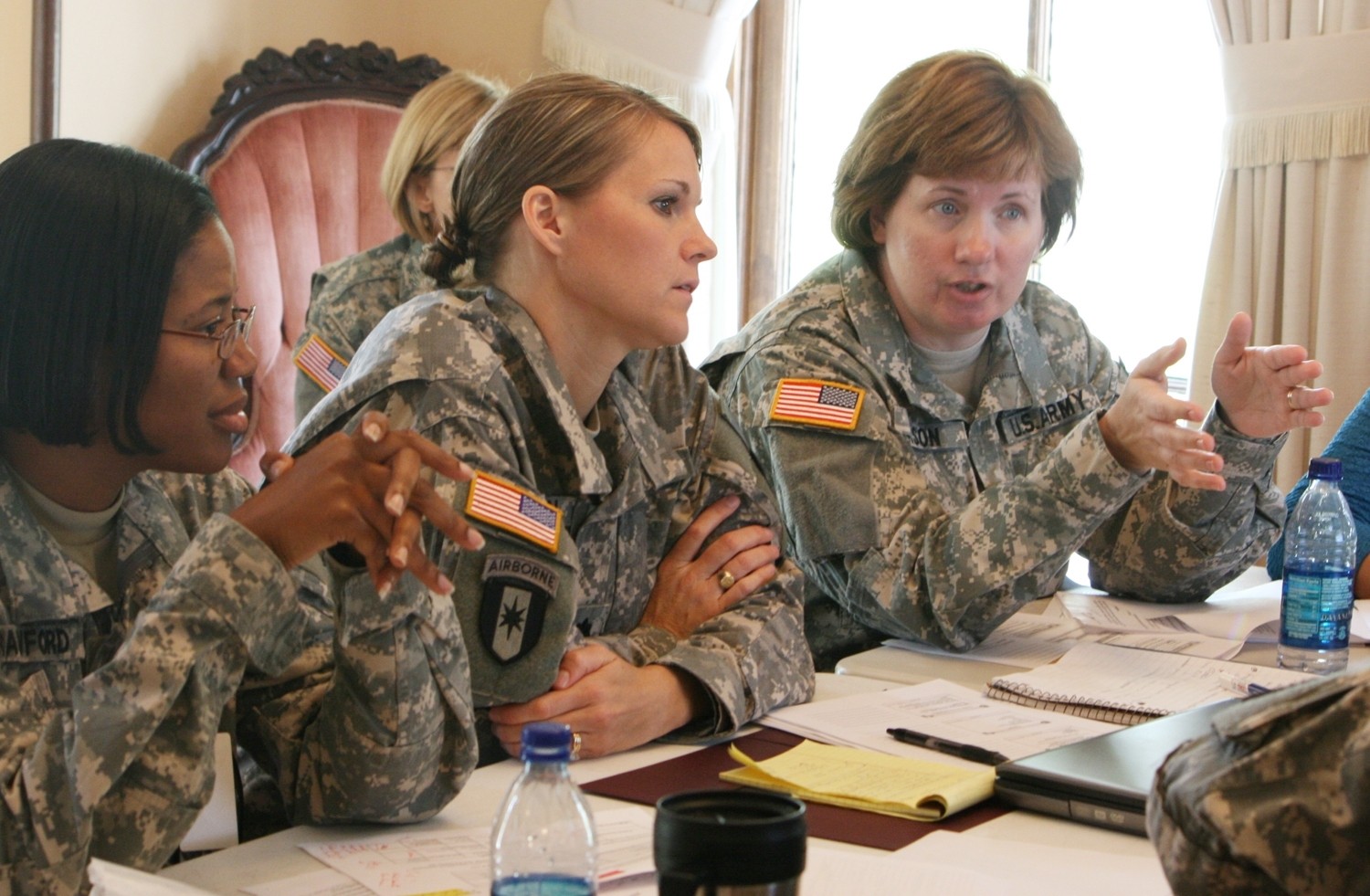
FORT SAM HOUSTON, Texas -- A new program for Army nurses who are recent college graduates will help bridge the gap between their academic training and the demands of the clinical environment and prepare them for deployment.
The one-year Army Nurse Residency program begins Oct. 6 with more than 100 newly commissioned second lieutenants performing residency at nine Army medical centers.
Fifteen Army nurse leaders and subject matter experts met at a summit to discuss the program's objectives and outcomes Aug. 5 to 6 at the Stilwell House.
Topics ranged from I.D. badges to nursing core competencies and everything in between.
The residency will create better nurses who are ready to take care of Soldiers, said Lt. Col. Marvella Bailey, chief of Hospital Education at the Carl R. Darnall Army Medical Center at Fort Hood, Texas.
"It will build their confidence and, hopefully, increase retention in the Army Nurse Corps," Bailey said.
The program is for new graduates with less than six months of acute care nursing experience, said summit leader Col. Kathy Dunemn, chief of Nursing Science at the Army Medical Department Center and School.
Previously, new Army nurses performed a mixture of an orientation and preceptorship, which varied greatly in length between medical facilities.
"In some places it was only three months long," Dunemn said.
The new four-phase residency program begins with in-processing and a tour of the nurse's respective facility, Dunemn said. Next, the nurse will learn organizational rules and information management programs. The last phases consist of clinical practice, working independently and learning deployment skills.
"The clinical skills are going to be emphasized -- definitely connecting the didactic that they need to know and enhancing their critical thinking skills," she said.
Between 100 and 140 nurses currently in the medical specialties officer basic course at the AMEDDC&S will begin their residencies soon after graduating in early October, Dunemn said.
Spirited discussion dominated the summit as the leaders fine tuned the program's objectives.
"We are still pulling things together, but we are coming to an end finalizing the initial product," said Bailey, who has been an Army nurse for 18 years. "That's not to say we won't have to tweak it in the future."
One nurse commented that the residency's requirements were based on established nursing educational guidelines and not the wishes of a few individuals.
Dunemn said she planned for the Army Nurse Residency program to become nationally accredited.
The residency will be similar to what civilian hospitals use, Dunemn said. Several years ago, civilian hospitals identified the need for nurse residency programs as a conduit from their academic experience to the work environment.
Another purpose was for better retention and recruiting of nurses, she said.
The Army Nurse Corps plans to use the residency program as a retention and recruiting tool, too, Dunemn said. Recruiters have been espousing the program to potential Army nurses. The new nurses in the current officer basic course knew they would be required to complete a residency before they signed up, she said.
The next step is for the nurse leaders and experts to put together the program's learning objectives and final touches and to have it ready for implementation in less than two months, Dunemn said.

Social Sharing